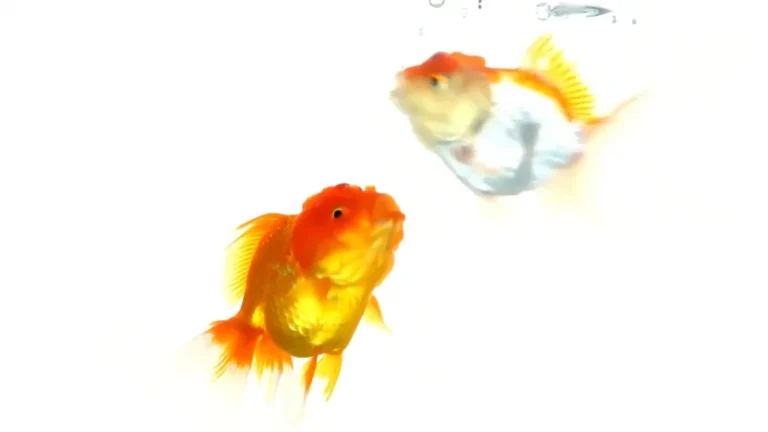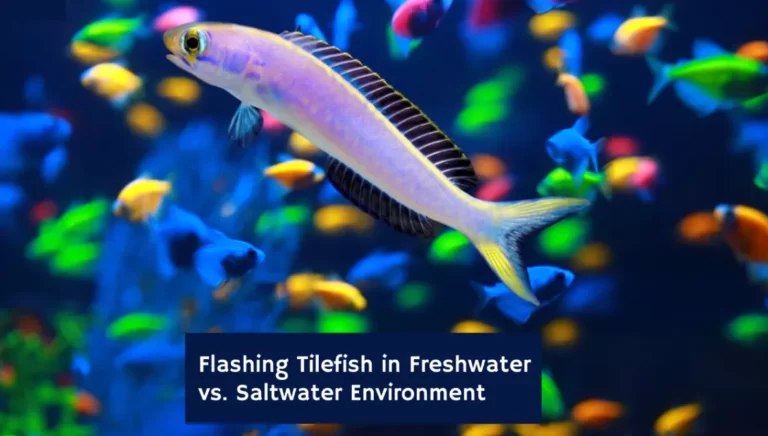Why Did My Betta Fish Disappear?
Betta fish, also known as Siamese fighting fish, are vibrant and captivating creatures that bring life to home aquariums. These stunning fish have become popular pets due to their unique beauty and captivating behaviors.
However, there may come a time when you notice the sudden disappearance of your betta fish, leaving you puzzled and concerned. In this article, we will delve into the possible reasons behind the mysterious disappearance of betta fish and explore ways to prevent such incidents from happening.

Importance of a Betta Fish in a Home Aquarium
Betta fish are not just ordinary fish; they hold a special place in the hearts of aquarium enthusiasts. Their vibrant colors and flowing fins make them a centerpiece in any aquarium. Beyond their aesthetic appeal, betta fish also possess distinct personalities and interactive behaviors that captivate their owners.
Understanding the significance of betta fish in a home aquarium is crucial to unraveling the mystery behind their sudden disappearance.
Personal Connection to Your Betta Fish
As a betta fish owner, you may have developed a personal connection with your aquatic companion. These fish have a remarkable ability to recognize their owners and establish bonds. Their interactive nature and responsiveness to human presence make them cherished companions.
Therefore, when a betta fish disappears, it not only raises concerns about their well-being but also evokes emotions of loss and worry.
Why Did My Betta Fish Disappear?
The Shocking Disappearance: A Cause for Concern
The sudden disappearance of a betta fish can be perplexing and alarming. To understand the reasons behind their disappearance, it is essential to examine their natural behavior, characteristics, and habitat. By doing so, we can shed light on the factors that might contribute to their vanishing act.
Understanding the Natural Behavior of Betta Fish
Betta fish have unique behavior patterns that differ from other aquarium fish. They are known for their aggressive nature and territorial instincts. Betta fish are solitary creatures that prefer to live alone. Male bettas, especially, exhibit aggression towards other males, which makes keeping them with other fish challenging.
Understanding their natural behavior helps us grasp the potential reasons behind their disappearance.
Characteristics and Habits of Betta Fish
Betta fish are labyrinth fish, meaning they possess a special labyrinth organ that allows them to breathe atmospheric air. This unique adaptation enables bettas to survive in low-oxygen environments, such as stagnant water bodies.
They have evolved to thrive in small spaces with access to the water’s surface, as long as the conditions are suitable. These characteristics play a vital role in their overall well-being and may shed light on their disappearance.
Exploring Betta Fish’s Natural Habitat
Betta fish are native to the shallow waters of Southeast Asia, such as Thailand, Cambodia, and Vietnam. Their natural habitat consists of rice paddies, shallow ponds, and slow-moving streams. These environments are often densely populated with vegetation, providing hiding spots and territories for bettas.
Understanding their natural habitat gives us insight into their requirements in a home aquarium and the potential challenges they may face.
Environmental Factors that Impact Betta Fish
Several environmental factors can influence the well-being and behavior of betta fish, which may contribute to their disappearance. Let’s explore some of these factors:
Water Quality and Temperature
Maintaining optimal water quality and temperature is crucial for the health and survival of betta fish. Betta fish are sensitive to changes in water conditions, and poor water quality can lead to stress, diseases, and ultimately disappearance.
Maintaining Optimal Water Parameters
To provide the best environment for betta fish, consider the following:
Ideal Temperature Range
Betta fish thrive in water temperatures between 76°F and 82°F (24°C – 28°C). Fluctuations outside this range can cause stress and health issues.
Proper pH Levels
Betta fish prefer slightly acidic to neutral water with a pH range of 6.5 to 7.5. Keeping the pH stable is crucial to their well-being.
Appropriate Water Hardness
Moderate water hardness, measured by the general hardness (GH) and carbonate hardness (KH), is optimal for betta fish. Aim for a GH range of 4-8 dGH and a KH range of 3-5 dKH.
Regular Water Changes
Regular water changes are necessary to maintain water quality and prevent the accumulation of toxins. Aim for weekly water changes of 20-30% of the tank volume.
The Impact of Poor Water Quality on Betta Fish Disappearance
Neglecting water quality can result in stressed and weakened betta fish. Poor water conditions can lead to diseases, infections, and ultimately, the disappearance of your betta fish.
Related Post: Is Duckweed Good for Bettas? Unlocking the Secrets to a Healthy Diet
Tank Size and Setup
The size and setup of your betta fish’s tank play a vital role in their well-being and disappearance.
Providing Adequate Space for Betta Fish
Betta fish require sufficient space to swim, explore, and establish their territories. Inadequate tank size can lead to stress, territorial disputes, and potential disappearance.
Minimum Tank Size Requirements
Ideally, a single betta fish should be housed in a tank with a minimum capacity of 5 gallons (19 liters). Larger tanks provide more swimming space and minimize aggression.
Essential Tank Accessories
Creating a comfortable and enriching environment for betta fish involves incorporating the following accessories:
Filtration System
A suitable filtration system helps maintain water quality by removing toxins and promoting oxygenation. Choose a gentle filter to prevent excessive water flow, which can stress bettas.
Lighting
Betta fish require a consistent light-dark cycle to mimic their natural habitat. Provide 8-12 hours of light per day and ensure the tank has a natural day-night rhythm.
Substrate and Decorations
A soft substrate, such as gravel or sand, is ideal for betta fish. Live or silk plants, caves, and driftwood offer hiding spots and mimic their natural environment.
Creating an Enriching Environment to Prevent Disappearance
An enriching environment with ample swimming space, hiding spots, and appropriate tank accessories reduces stress and enhances the overall well-being of betta fish.
Inadequate Hiding Places
Hiding spots are essential for betta fish to feel secure and establish territories. The lack of hiding places can lead to stress and even disappearance.
Importance of Hiding Spots for Betta Fish
Betta fish seek refuge in hiding spots when they feel threatened or need a break from their surroundings. Hiding spots serve as essential elements in their well-being.
Types of Hiding Places
Consider incorporating the following types of hiding places in your betta fish’s tank:
Plants and Vegetation
Live or silk plants with broad leaves and dense foliage provide excellent hiding spots and mimic their natural habitat.
Caves and Tunnels
Ceramic caves, PVC pipes, or natural materials like coconut shells offer secure hiding places for betta fish.
Floating Objects
Floating objects like Indian almond leaves or betta hammocks provide resting spots near the water’s surface.
Enhancing the Aquarium with Sufficient Hiding Places
Strive to create a tank environment that offers multiple hiding places distributed throughout the tank. This ensures betta fish have options to retreat and feel secure, reducing stress and the likelihood of disappearance.
Presence of Predators
The presence of predators in the tank can instill fear and stress in betta fish, leading to disappearance.
Identifying Potential Tankmates
When choosing tankmates for your betta fish, consider their compatibility and behavior. Avoid aggressive or fin-nipping species that could harm or stress your betta.
Compatibility with Other Fish Species
Some peaceful fish species, such as neon tetras or corydoras catfish, can coexist with betta fish. Always research the compatibility of potential tankmates beforehand.
Mitigating the Risk of Predation
Ensure that the tank environment provides ample hiding places and territories for your betta fish, minimizing the risk of predation by other fish species.
Stress Factors and Diseases
Stress can weaken the immune system of betta fish, making them susceptible to diseases and disappearance.
Common Stressors for Betta Fish
Various factors can cause stress in betta fish:
- Erratic water parameters
- Loud noises and vibrations
- Frequent disturbances
- Inadequate nutrition
- Incompatible tankmates
Recognizing Symptoms of Stress and Disease
It’s essential to monitor your betta fish for any signs of stress or disease. Symptoms may include:
- Loss of appetite
- Lethargy
- Faded or discolored fins
- Erratic swimming patterns
- Visible signs of infection or parasites
Proper Quarantine and Treatment Measures
If you suspect stress or disease, isolate the affected fish in a quarantine tank and consult a veterinarian or an experienced fish keeper for appropriate treatment.
Related Post: How Many Female Bettas Can You Keep in a 30-Gallon Tank?
FAQs:
What should I do if my betta fish disappears?
Check the entire tank thoroughly, including hiding spots, and monitor water parameters.
Can betta fish vanish without a trace?
While it’s uncommon, betta fish may disappear due to various factors such as illness or predation.
How can I prevent my betta fish from disappearing?
Ensure a suitable tank setup, maintain proper water quality, and provide a stress-free environment.
Related Posts:




